Are you ready to take control of your credit score and protect it from the sneaky clutches of identity thieves? Well, buckle up because we’re about to dive into a world where vigilance is key, and safeguarding your personal information becomes an art form.
In this article, we’ll uncover the secrets to keeping your credit score pristine by monitoring your reports like a hawk, fortifying your online accounts with ironclad passwords, and outsmarting those pesky phishing scams.
Get ready to become the master of your credit destiny!
Key Takeaways
- Regularly monitor your credit reports and use credit monitoring services to detect any suspicious activity.
- Take immediate action and report any suspicious activity to credit bureaus and financial institutions to protect your finances.
- Safeguard your personal information by updating passwords, enabling two-factor authentication, and being cautious of phishing attacks.
- Use secure payment methods like credit cards and reputable third-party services to prevent identity theft during online purchases.
Understanding Identity Theft and Its Impact on Your Credit Score
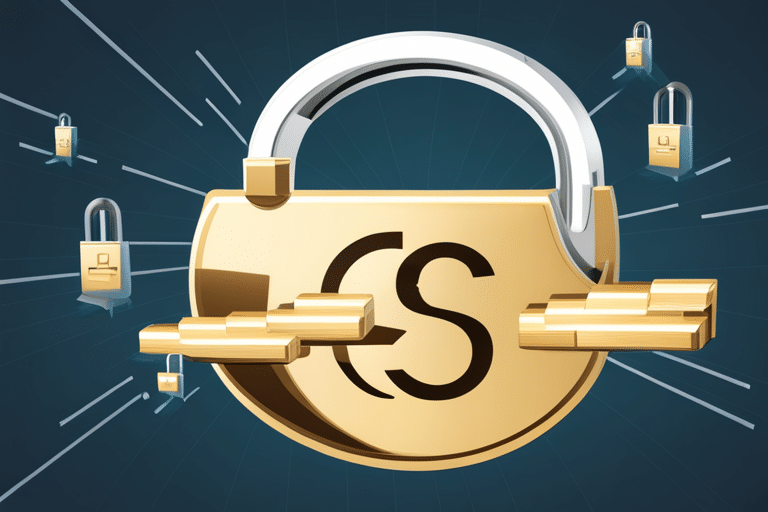
Understanding how identity theft affects your credit score is crucial in order to protect yourself from financial harm. Identity theft is like a sneaky ninja that can wreak havoc on your finances without you even knowing it. So, let’s dive into the world of identity theft and discover its different types and the consequences they bring.
First up, we have good old-fashioned credit card fraud. This is when someone steals your credit card information and goes on a shopping spree using your hard-earned money. Not only does this drain your bank account, but it also leaves a trail of unpaid bills that can seriously damage your credit score.
Next, we have the terrifying world of social security number theft. When someone gets their hands on your precious SSN, they can open new accounts in your name or even file fake tax returns to get refunds that should be rightfully yours. This not only messes with your financial life but also creates a nightmare when trying to prove who you really are.
But wait, there’s more! We also have medical identity theft, where someone uses your personal information to receive medical treatment or prescription drugs. Not only can this lead to incorrect medical records and misdiagnoses, but it can also leave you with massive medical bills that aren’t even yours.
Recognizing signs of identity theft is key in protecting yourself. Keep an eye out for unauthorized charges on your bank statements or unfamiliar accounts showing up on your credit report. Taking preventative measures such as shredding important documents and monitoring your accounts regularly will help keep those pesky thieves at bay.
Monitoring Your Credit Reports Regularly for Suspicious Activity

Monitoring your credit reports regularly helps you detect any suspicious activity. It’s like having a superhero sidekick that keeps an eye on your financial well-being, ready to swoop in and save the day if anything fishy is going on.
You might be thinking, ‘But how do I even monitor my credit reports? Do I need to hire a team of private investigators?’ Fear not, my friend! In this age of advanced technology, there are credit monitoring services at your disposal.
These services act as your trusty guardians, constantly scanning your credit reports for any signs of trouble. They keep a vigilant watch over every nook and cranny, making sure no identity thief slips through the cracks. And the best part? They do all the heavy lifting for you! No magnifying glass required.
Now, let’s talk about reporting suspicious activity. If you notice something fishy while perusing your credit report (and no, we’re not talking about that time you bought too much sushi), it’s important to take action immediately. Think of yourself as Sherlock Holmes unraveling a mystery – only this time, it’s personal finance instead of murder.
Contact the credit bureaus right away and inform them about the suspicious activity you’ve uncovered. They’ll launch an investigation faster than James Bond chasing down bad guys in his fancy cars (minus the explosions). Additionally, reach out to any financial institutions involved and let them know what’s happening. The sooner you report it, the quicker they can put safeguards in place to protect your hard-earned cash.
Remember: vigilance is key when it comes to protecting your credit score from identity theft. So whip out that cape and mask (metaphorically speaking) and let those credit monitoring services be your trusted sidekick in this battle against nefarious villains trying to mess with your finances!
Safeguarding Personal Information to Prevent Identity Theft
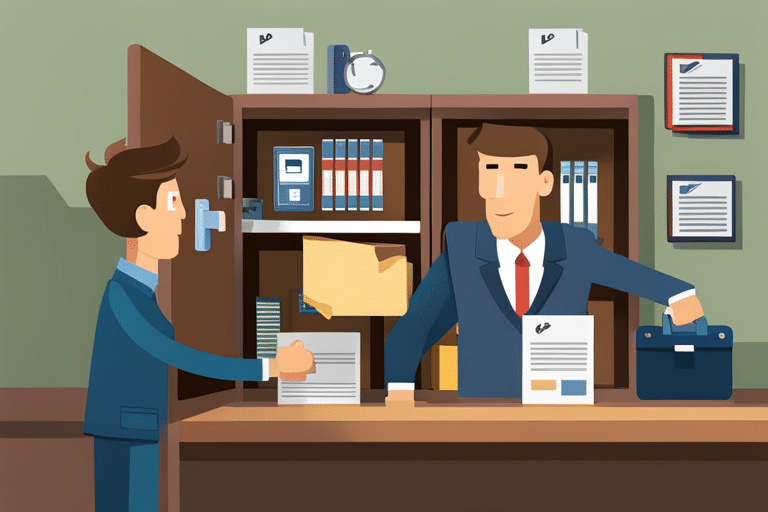
Make sure to regularly update your passwords and enable two-factor authentication to safeguard your personal information from potential identity theft. In today’s digital age, it’s more important than ever to take proactive steps in protecting yourself from hackers and data breaches.
Here are some savvy tips to keep your personal information safe:
-
Stay Password Savvy: Create strong, unique passwords for all your accounts and change them regularly. Avoid using simple combinations like ‘123456’ or ‘password.’ Instead, go for a mix of upper and lowercase letters, numbers, and special characters that only you can remember.
-
Enable Two-Factor Authentication: Adding an extra layer of security by enabling two-factor authentication provides an additional barrier against unauthorized access to your accounts. This way, even if someone manages to obtain your password, they won’t be able to log in without the second verification step.
-
Beware of Phishing Attacks: Be vigilant when it comes to suspicious emails or messages asking for personal information or directing you towards unfamiliar websites. Avoid clicking on unknown links and always verify the sender’s authenticity before sharing any sensitive data.
-
Secure Your Wi-Fi Network: Ensure that your home network is protected with a strong password. This will prevent unauthorized users from accessing your internet connection and potentially intercepting sensitive information transmitted over the network.
-
Use Secure Payment Methods: When making online purchases or conducting financial transactions, opt for secure payment methods such as credit cards or reputable third-party services like PayPal. These provide an added layer of protection by offering buyer protection programs and encryption protocols.
Using Strong and Unique Passwords to Protect Your Online Accounts
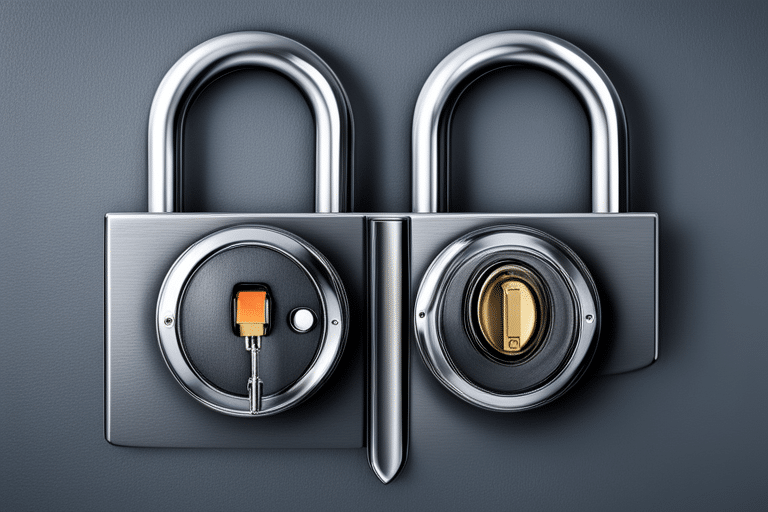
Using strong and unique passwords is crucial for protecting your online accounts from potential security breaches. Let’s face it, we live in a world where hackers are lurking around every digital corner, just waiting to pounce on the weak and unsuspecting.
But fear not, dear reader! With a little bit of creativity and some password prowess, you can fortify your virtual fortress and keep those cyber criminals at bay.
First things first – creating strong and unique passwords is key. Gone are the days of using ‘123456’ or ‘password’ as your go-to login credentials. Get creative! Mix it up with a combination of uppercase letters, lowercase letters, numbers, and special characters. Think of it as building a secret code that only you can crack.
But wait, there’s more! Don’t just rely on passwords alone; two-factor authentication is here to save the day. This nifty security feature adds an extra layer of protection by requiring you to provide a second form of verification when logging into your accounts. It could be a fingerprint scan, a text message with a one-time code, or even an app-generated QR code. So even if someone manages to guess your password (which they won’t because you’re following my advice), they still won’t be able to access your precious online kingdom without that second factor.
So there you have it – the power lies in your hands (or fingertips). By creating strong and unique passwords and embracing the magic of two-factor authentication, you can rest easy knowing that your online accounts are safe from those pesky hackers.
Now go forth, my friend, and conquer the digital realm with confidence!
Recognizing and Avoiding Phishing and Other Scam Tactics
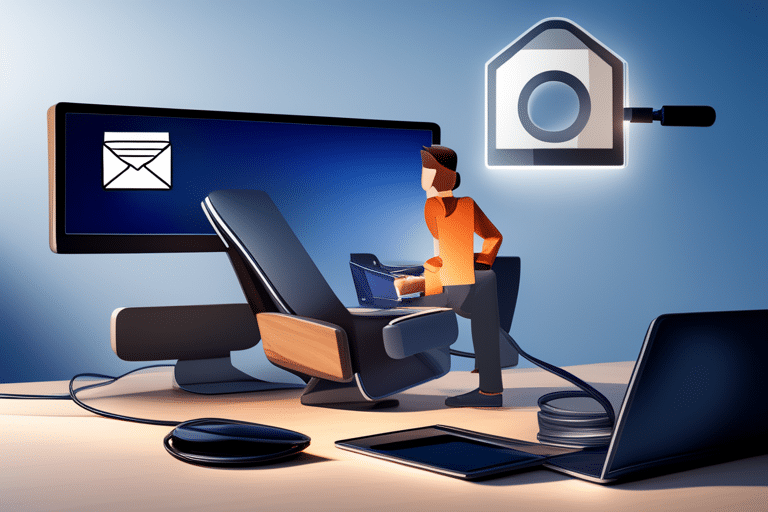
So, you think you’re pretty savvy when it comes to online scams, huh? Well, let’s put your skills to the test.
In this discussion, we’ll delve into the art of spotting fake emails, mastering the fine art of guarding your personal information like a fortress, and staying one step ahead by staying informed about all the latest scam tactics.
Get ready to become the ultimate scam-dodging ninja!
Spotting Fake Emails
It’s important to be cautious when opening emails as some may be fake and used for identity theft. Here are a few tips to help you spot those sneaky phishing scams:
-
Check the sender’s email address. If it looks suspicious or unfamiliar, proceed with caution.
-
Look out for grammatical errors and spelling mistakes in the email. Legitimate companies usually have better proofreaders than your crazy aunt Carol.
-
Be wary of urgent requests for personal information or financial details. Scammers love to create a sense of urgency to get you to act without thinking.
-
Hover over links before clicking on them. If the URL doesn’t match the supposed sender, it’s probably a trap.
-
Trust your gut. If something feels off about an email, trust your instincts and delete it.
Guarding Personal Information
Be cautious with sharing sensitive information, as this can make you vulnerable to potential scams and fraudsters. Preventing online fraud is crucial in today’s digital age. One of the best ways to protect yourself is by securing your personal documents. By keeping your important papers safe and secure, you can reduce the risk of identity theft and unauthorized access to your financial information.
To help you understand the importance of securing personal documents, here’s a handy table:
| Personal Documents | Secure Storage Tips |
|---|---|
| Social Security Card | Keep it locked in a safe place |
| Passport | Store it in a fireproof box |
| Bank Statements | Shred them before disposal |
Staying Informed About Scams
Alright, you’ve learned how to guard your personal information like a pro. Now let’s dive into the treacherous world of scams and how to stay informed about them. It’s like being a detective, but with less trench coats and more online savvy.
Here are some tips to keep you one step ahead of those crafty scammers:
- Stay updated on the latest scams through reliable news sources or websites.
- Be cautious when shopping online, making sure to only use secure websites.
- Protect your social media accounts by setting privacy settings and being mindful of what you share.
- Watch out for phishing emails that may trick you into revealing sensitive information.
- Trust your gut: if something feels off or too good to be true, it probably is.
Now that we’ve got the online world covered, let’s shift gears and talk about being mindful of sharing personal information offline. But first, let’s take a closer look at these sneaky scammers.
Being Mindful of Sharing Personal Information Offline
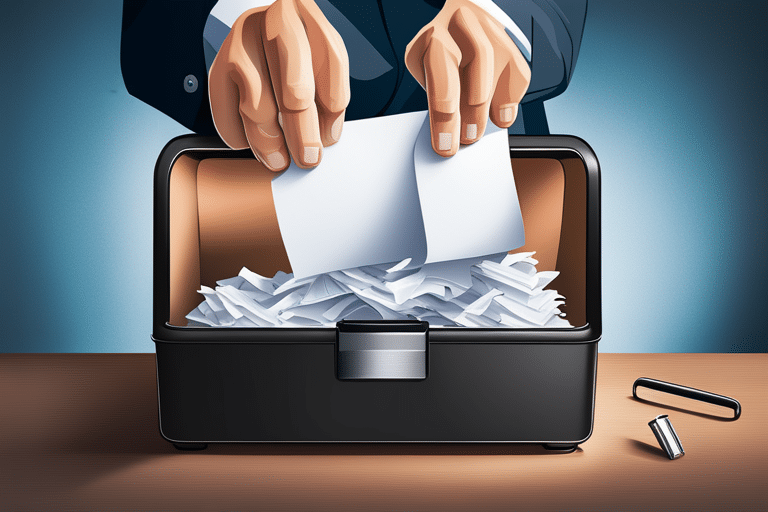
When you’re cautious about sharing personal information offline, you can reduce the risk of identity theft. In this digital age, it’s easy to forget that not all threats come from the online world. So, let’s take a step back and focus on minimizing the paper trail that could potentially lead to your precious credit score being tarnished.
Think about it – every piece of paper with your personal information on it is a potential goldmine for identity thieves. From bank statements and credit card bills to medical records and even junk mail with your name and address on it, these seemingly harmless documents can be used against you if they fall into the wrong hands.
To help you visualize just how important it is to minimize your paper trail, here’s a handy table:
| Personal Information | Potential Risk |
|---|---|
| Bank Statements | Unauthorized Access |
| Credit Card Bills | Fraudulent Charges |
| Medical Records | Insurance Fraud |
| Junk Mail | Impersonation |
See? Each row represents a different source of personal information, while each column highlights the potential risks associated with them. By being mindful of what you share and disposing of sensitive documents properly (i.e., shredding them), you’re taking steps towards protecting yourself from identity theft.
Taking Immediate Action if You Suspect Identity Theft
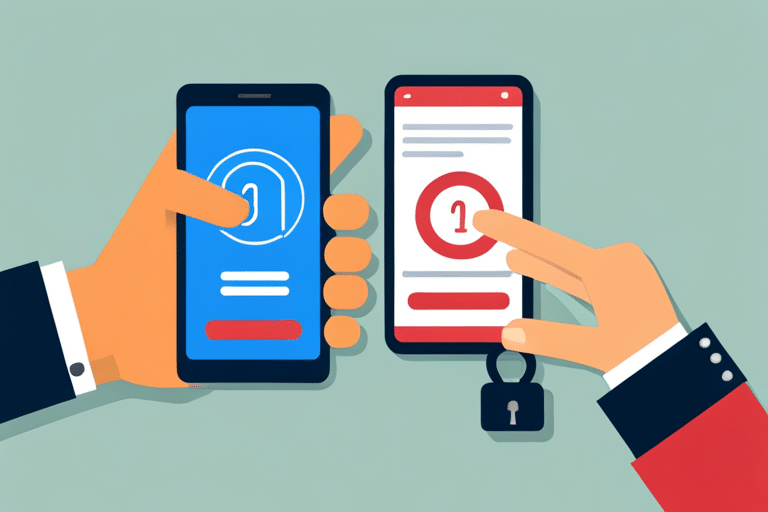
If you suspect that your personal information has been compromised, take immediate action to prevent further harm. Identity theft is a serious threat in today’s digital age, but with the right steps, you can protect yourself and your credit score. Here are some tips to help you respond quickly and effectively:
-
Freeze your credit: Contact the three major credit bureaus – Equifax, Experian, and TransUnion – to place a freeze on your credit. This will prevent any unauthorized access or new accounts from being opened in your name.
-
Monitor your accounts: Keep a close eye on all of your financial accounts for any suspicious activity. Review bank statements, credit card bills, and online transactions regularly. If you notice anything unusual, report it immediately.
-
File a police report: Contact your local law enforcement agency to file a police report about the identity theft incident. This will provide an official record of the crime and may be required by banks or creditors as proof of fraud.
-
Change passwords: Update all of your online account passwords to strong, unique combinations. Use a mix of upper and lowercase letters, numbers, and symbols to make them harder for hackers to crack.
-
Notify other relevant parties: Inform other institutions that may be affected by the identity theft, such as utility companies or healthcare providers. Provide them with details about the incident so they can take appropriate measures.
Remember, time is of the essence when it comes to dealing with identity theft. By taking immediate action and contacting credit bureaus along with following these steps, you can minimize the damage caused by this unfortunate situation.
Stay vigilant and protect what’s rightfully yours!
Frequently Asked Questions
How Can I Protect My Credit Score if I Have Already Been a Victim of Identity Theft?
If you’ve been hit by identity theft, don’t panic! Take these steps to protect your credit score and bounce back. Monitor your accounts closely, report the fraud, freeze your credit, and work towards recovering financially. You got this!
Is Freezing My Credit Report an Effective Way to Prevent Identity Theft?
Freezing your credit report is an effective way to prevent identity theft. It stops unauthorized access to your credit information. Monitoring your credit score regularly also helps catch any suspicious activity quickly.
Should I Be Concerned About Sharing My Personal Information With Financial Institutions or Credit Bureaus?
Don’t worry about sharing personal info with financial institutions or credit bureaus! Using credit monitoring services has benefits like early detection of identity theft. Just watch out for common signs and protect yourself.
How Can I Ensure That My Online Accounts Are Secure From Identity Theft?
To ensure your online accounts are secure from identity theft, follow online security best practices. Be vigilant for common signs of online identity theft and take immediate action if you suspect any suspicious activity.
What Steps Should I Take if I Suspect That My Personal Information Has Been Compromised Offline?
If your personal information has been compromised offline, take immediate action to protect yourself. Contact the authorities, freeze your credit, and monitor your accounts closely. It’s crucial to recover from identity theft offline as soon as possible.
Conclusion
Congratulations! You’ve reached the end of this credit-saving journey. Now armed with knowledge on how to protect your credit score from identity theft, you can sleep peacefully knowing you’re one step ahead of those sneaky thieves.
Remember, vigilance is key! Keep monitoring your credit reports, safeguarding personal information, and using strong passwords like a pro.
Stay sharp against phishing scams and be cautious offline too. If you ever suspect identity theft, don’t wait – take action pronto! Your credit score will thank you for being a savvy defender of financial well-being.
Stay safe out there!

